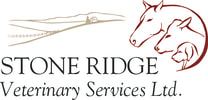|
Reverse sneezing is a condition where the pet most commonly dogs, rapidly pull air into the nose, unlike a regular sneeze where air is rapidly pushed through the nose. The dog makes a snorting sound and seems to be trying to inhale while sneezing. To owners, reverse sneezing can sound very alarming. As an owner you may even think your pet is choking, gagging, or that they are not breathing during the episodes. It is not a harmful condition and there are no ill effects. The exact cause of reverse sneezing is unknown. Any irritation to the nose, sinuses, or back of the throat can cause an episode. Irritants can include nasal mites, secretions, seeds, pollens, grasses, allergies, smoke, odors, masses, elongated soft palate, excitement, eating too quickly or cold air. Reverse sneezing is diagnosed only after ruling out other causes of abnormal breathing and snorting like upper respiratory tract infection, collapsing trachea, nasal tumors or polyps. Once diagnosed this will be a part of your life with your dog moving forward. Episodes generally last between seconds up to a minute. Reverse sneezing is more common in Beagles, Terriers, Bulldogs, Boxers, Pugs, Perkingese, Lhasa Apso, and Shih Tzu.
There are a few things that owners can try to do for their pets when they are having an episode. Occasionally, stimulating your pet to swallow can stop the reverse sneezing. This can be done by either massaging the throat, taping on the nose, opening your pets mouth, blow softly in their face, or offering them some food and water. If the reverse sneezing episodes are quite often then various medications may be needed to keep your pet comfortable. The veterinarian may prescribe antihistamines if it is related to allergies, cough suppressants or a parasitic treatment if there are nasal mites. Most of the time if the cause is unknown there is not much that a veterinary team can do other than rule out more severe causes of the abnormal noise. Some things to prevent reverse sneezing are minimize fragrances, smoke and aerosols, change furnace filters, use vaporizers in a dry environment, dust and vacuum often, wash bedding often, use a harness rather than a collar, bathe or wipe your pet regularly in allergy season. Owners can also take note of anything that may have led to their pet having an episode and that will hopefully bring up the cause of the reverse sneezing.
0 Comments
Leave a Reply. |
Ashlyn, RVTJoin me in learning a few tips about being the best owner that you possibly can be. Archives
September 2022
Categories |
Phone | 780-554-0663 | Fax | 780-348-5540 [email protected]
Enter "Stone Ridge Vet" into Google or Apple Maps
59525 Range Road 235, Westlock County
Enter "Stone Ridge Vet" into Google or Apple Maps
59525 Range Road 235, Westlock County

 RSS Feed
RSS Feed